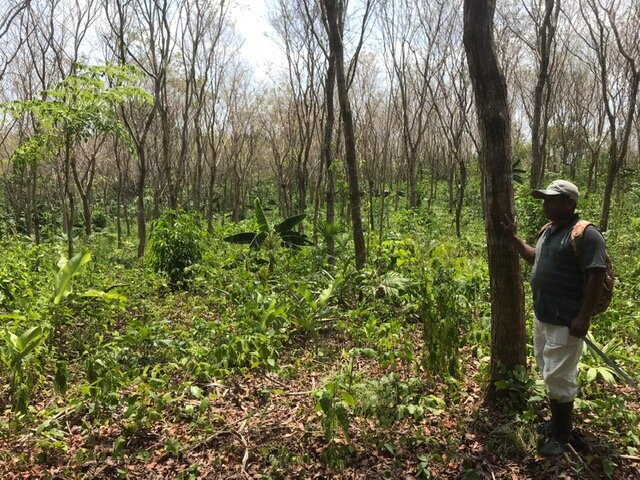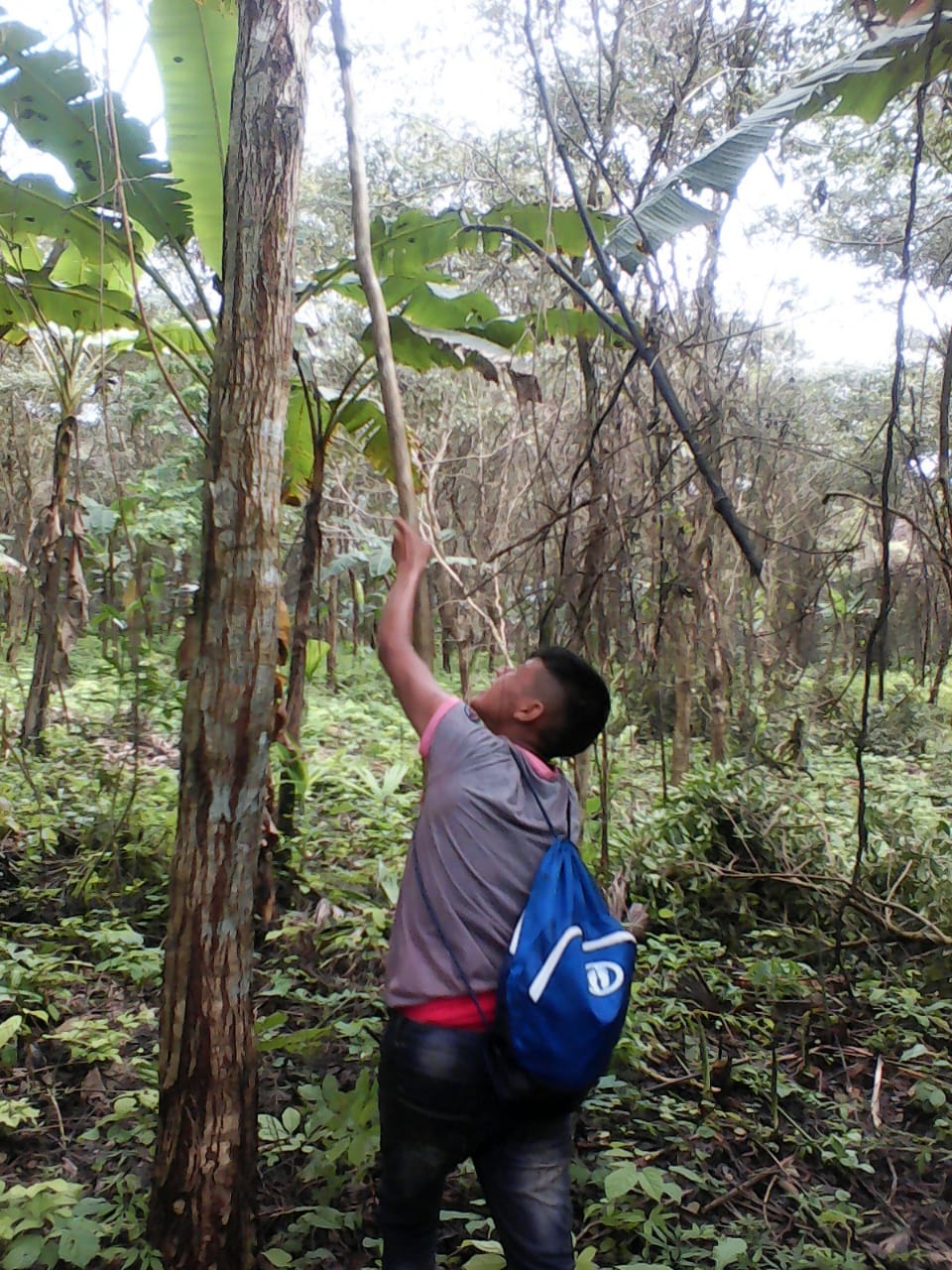2011 was another year of “growth” for Planting Empowerment, and also marked our five year birthday. Our investors’ trees grew taller and stronger, we improved our operations, added to the Planting Empowerment Advisory Board, and formalized and gained more recognition for our Equitable Forestry model.
Operationally, we continued to develop initiatives to increase benefits to our partner communities. Namely, we began planting staple crops between the rows of trees (agroforestry), to generate returns earlier and increase efficiencies in our operations. We expect the plantains and yams to begin producing yields next year.
In 2012, Planting Empowerment plans to plant another five hectares of trees, bringing our total area under cultivation to 25 hectares (65 acres). We will be working with a former Peace Corps colleague-turned-biochar-expert Alan Foster to jumpstart our program, based on the MIT biochar business plan (PDF) created for us in 2010. We will use the biochar to fertilize our own trees initially, but will possibly sell it to other forestry or agricultural operations in the future.
2011 also marked the year that we formalized our operating model into five principals and gave it a name: the Equitable Forestry model. We were honored to be part of a United Nations Development Program study on Biodiversity in Latin America and the Caribbean (PDF). Planting Empowerment will also be presenting the model at the Yale School of Forestry International Society of Tropical Foresters Annual Conference in January of next year.
Thomas P. Kearney III and Sherif Gamal joined our Advisory Board, adding needed experience in finance and marketing, respectively. Our updated website holds more information for investors and visitors about forest investments, impact investing, tropical deforestation, and rural development. And the Planting Empowerment blog continues to serve as source of trusted information for those interested in forestry and investing in forestry.
As more investors recognize the benefits of responsible forest investing, we’re confident that Planting Empowerment will continue to create positive impacts for our partner communities and surrounding ecosystems. We look forward to working with you towards that goal in 2012.
 I recently wrote an opinion piece for the Winter issue of WorldView magazine that explores the development challenges we faced as Peace Corps Volunteers and how we engage impact investing to help us meet those challenges.
I recently wrote an opinion piece for the Winter issue of WorldView magazine that explores the development challenges we faced as Peace Corps Volunteers and how we engage impact investing to help us meet those challenges.




